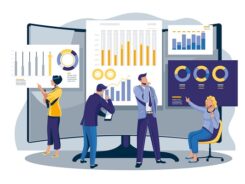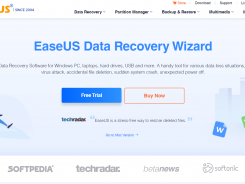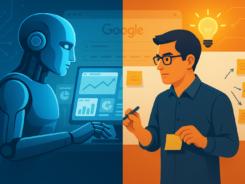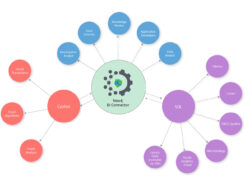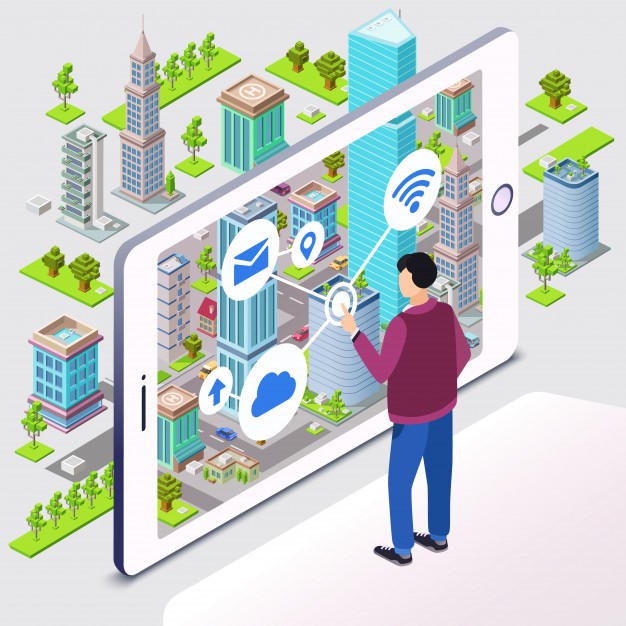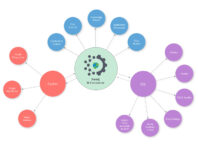When we think about the term smart cities, what instantly comes to mind is a place that is working at its optimum, solutions before problems ever occur and hassle free, healthy living conditions. It is nothing short of a movement because it has been going on now for some years, different cities adopting different technologies in their best interests.
Technology is ever changing, innovating and resurfacing time and again in different ways. When talking about a smarter city, we’re looking at technological advancements that have the power of transforming cities at their very core. We’re talking about a place that has some fundamental qualities and can analyze and communicate data, while being sensitive enough to create and maintain connectivity among the citizens. Everything has to work in complete harmony and in an order so that the opportunity/chance for failure is minimized while it is intelligent and innovative at its core.
The beautiful thing about smart cities is the possibility to realize aspirations, the benefits that can be gained and the option of creatively going on to achieve all of it. A smart environment uses different sensors located in different systems that have the capacity of gathering as well as transforming simple data into intelligent information, bridging the gap between our understanding of how the environment is responding and how it should respond. It allows through awareness of situations to look for optimum solutions. What becomes extremely exciting is the productiveness of such a smart city and the enhanced ability of its systems to predict what will be the best solution.
Let’s take a look at a few things that smart cities boast of and that can actually be realized at the moment;
- Improved Logistics
By now we do understand that a smart city makes use of digital and communication technologies, both ICT and IoTs, to run at its best to give optimum results and to provide the promised services to create better lives for its citizens. The biggest and the most easily noticeable difference it has actually made is in the transport system. Using its predictive analysis, and by gathering information from citizens as well as properly placed sensors, a smarter transport system means less traffic jams, faster commutes and hassle free comfortable parking, slippery roads and trouble on traffic lights, this will all be completely handled by one system while the whole city benefits. The futuristic driverless cars and green emission vehicles represent lesser issues when talking about general public health and comfort.
- Enhanced Health Standards
Well planned and better development of the city and its infrastructure is another viable plus. Another immense benefit that comes from smart cities is the ability that they have of improving upon its inhabitants lives. Such systems can be implemented that track residents’ health, identify and protect citizens in crime zones, creating trust and harmony among the incumbents. The sense of community is reinsured and relationships are solidified among people as well as the governments.
- Upgraded Integration For Increased Efficiency
A smart city is most of all an efficient one. It is designed in a way to promote ease. The tools and technologies that are used benefit not only the residents but also the government agencies, ensuring the fact that most governments are in good relations with their citizens. The city services are improved as we can see more cost cutting, budget friendly ways of managing the citizens’ rights. As soon as there is a discrepancy in a system, the concerned department is alerted and help can be instantly provided which is excellent for cities where urbanization is at its peak.
- Superior Energy And Atmospheric Management
Smart cities are also smarter in saving on energy and in creating a better, healthier environment. For example; the city of Chicago is making use of such sensors and cameras that has the ability to detect the change in air quality, keeping a check on noise and waste management, temperature and water level. The data collected through these is helpful in creating a more “fitter” city that can identify when and how to save energy and to address issues related to the living conditions of its citizens.
- Local Development And Fund Allocation
Smart city ensures the local economic development as work opportunities are created for people because the smart infrastructure is indefinitely more cost friendly in the long run, so the surplus amount can be utilized in projects that benefit the citizens financially. The flow of wealth is easily identified and monitored, making it possible to spend where the need is and not at unnecessary places. The quality of e-services is improved as data is accumulated for better services to the community. If implemented rightly, then with the help of gathered data and internet connected devices, a smart city can be the answer to our problems when it comes to inefficient systems and work protocols.
- Automated Services
Imagine a city where every device and every service that you might want to avail on those devices is automated. All you would have to do is to press a button or simply talk to your voice assistant and you your Comcast TV Packages would automatically be installed and initiated on your Television sets. Your internet packages are self-automated and will be easily available on your devices and that is just the start. The possibilities are endless.
We cannot expect a system of devices and sensors to work at its most excellent or to excel in any way unless we make our institutions strong as well. If an alarm is raised identifying a live burglary, we cannot claim to have a fully implemented smart solutions system unless we mobilize the response team to react at opportune moments. Similarly, governments cannot benefit from sensors detecting waste production or excessive energy consumption if the people responsible of dealing with these issues do not react fast enough to any such situation. To get the maximum out of any such technology, we need to mobilize the human tech support to reach the maximum results. Only then can we completely rely on the smarter approach to problems in any given scenario.










